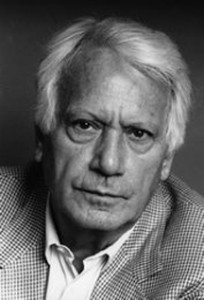Jorge Semprún (1923-2011)
 The death earlier this week of the Spanish-French novelist Jorge Semprún Maura at age 87 has spurred dozens of reflections on the importance of his life and work–both intimately tied up with the major events and movements of the twentieth century. Semprún, who wrote most of his books in French, was the son of a Spanish Republican diplomat whom the outbreak of the Civil War surprised in The Hague. As a teenager Semprún joined the French resistance against the Nazis until was arrested and deported to Buchenwald. After World War II he became a leading figure in the Spanish Communist Party in exile and helped organize the anti-Francoist resistance. He broke with the Party in 1964. From 1988 to 1991 he served as Spanish Minister of Culture. Among his works are Le Grand Voyage (1963), Autobiografía de Federico Sánchez (1977), Quel beau dimanche! (1980) and the scripts for the films Z (Costa-Gavras, 1969) and La guerre est finie (Resnais, 1966). One of my personal favorites is his participation, alongside Gyorgy Konrad, George Steiner, and Gabriel García Márquez, in a monumental documentary by the Dutch filmmaker Wim Kayzer, Nauwgezet and Wanhopig (Painstaking and Desperate), which can be viewed online here. For more, see the obits in the New York Times, El País, Público, and the BBC.
The death earlier this week of the Spanish-French novelist Jorge Semprún Maura at age 87 has spurred dozens of reflections on the importance of his life and work–both intimately tied up with the major events and movements of the twentieth century. Semprún, who wrote most of his books in French, was the son of a Spanish Republican diplomat whom the outbreak of the Civil War surprised in The Hague. As a teenager Semprún joined the French resistance against the Nazis until was arrested and deported to Buchenwald. After World War II he became a leading figure in the Spanish Communist Party in exile and helped organize the anti-Francoist resistance. He broke with the Party in 1964. From 1988 to 1991 he served as Spanish Minister of Culture. Among his works are Le Grand Voyage (1963), Autobiografía de Federico Sánchez (1977), Quel beau dimanche! (1980) and the scripts for the films Z (Costa-Gavras, 1969) and La guerre est finie (Resnais, 1966). One of my personal favorites is his participation, alongside Gyorgy Konrad, George Steiner, and Gabriel García Márquez, in a monumental documentary by the Dutch filmmaker Wim Kayzer, Nauwgezet and Wanhopig (Painstaking and Desperate), which can be viewed online here. For more, see the obits in the New York Times, El País, Público, and the BBC.












